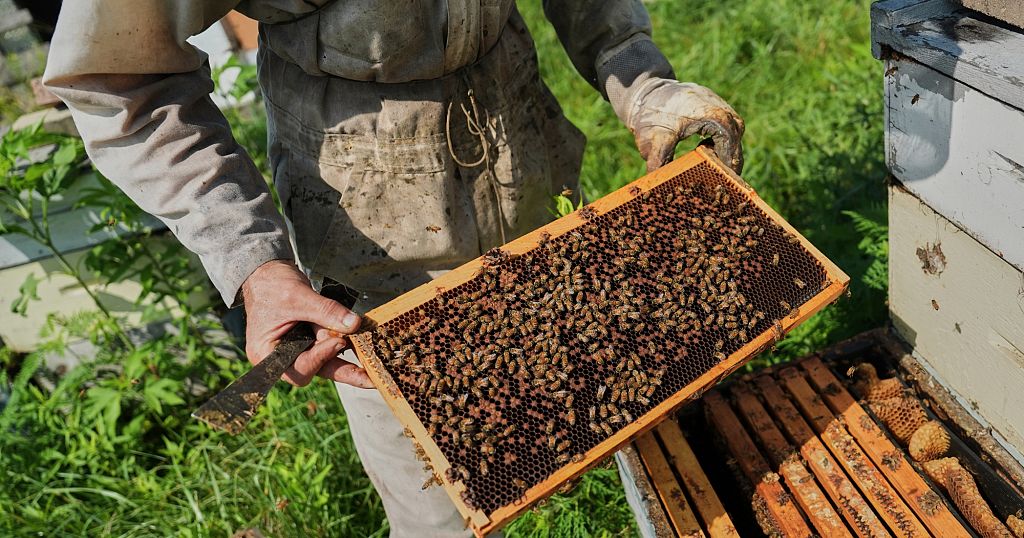As global temperatures climb, bees—despite their natural resilience to heat—are facing unprecedented challenges that threaten their survival and the ecosystems they sustain. Responsible for pollinating a third of the world’s food crops, including fruits, vegetables, and nuts, these vital insects are struggling to adapt to extreme weather, habitat loss, and other stressors intensified by climate change. New research reveals that rising temperatures may push bees beyond their physiological limits, disrupting their critical role in food production and biodiversity.
Studies show bees exhibit altered flight patterns during heatwaves and increasingly seek shaded or cooler areas, much like humans escaping the sun. But this survival tactic comes at a cost: time spent avoiding heat is time not spent pollinating or foraging, which scientists warn could weaken colonies and make them more susceptible to disease. Kevin McCluney, a biology professor at Bowling Green State University, notes that dehydration—not overheating—is the primary threat. His team found bees lose water rapidly as their body temperatures rise, hitting their dehydration threshold long before reaching lethal heat levels.
“When environments become stressful, bees prioritize finding water or shade over pollination,” McCluney explains. “This not only reduces their productivity but could also impair reproduction, further destabilizing populations.” Compounding the issue, urbanization and habitat fragmentation have diminished floral diversity, leaving bees with fewer food sources. However, McCluney emphasizes that simple interventions, like planting native flowers that bloom across seasons, can counteract these declines. “Increased urbanization reduces bee diversity, but adding more flowering plants reverses that trend,” he says. “It’s a practical, scalable solution.”
Despite such findings, gaps in data persist regarding the precise impact of climate change on pollinator health. Funding cuts to critical research programs, including the U.S. Geological Survey’s Bee Lab—slated for elimination under a proposed federal budget—threaten to delay scientific understanding and conservation efforts. The lab’s work in monitoring wild bee populations and documenting their decline is considered vital for informing policy and agricultural practices.
The stakes are high. Over 75% of global food crops rely on pollinators, and their decline could reshape food systems, economies, and natural habitats worldwide. While bees’ innate heat tolerance offers some buffer, researchers stress that mitigating habitat destruction, pesticide use, and climate-driven extremes remains urgent. As McCluney puts it, “Bees are resilient, but there’s only so much they can withstand. Their survival—and ours—depends on how we respond now.”
